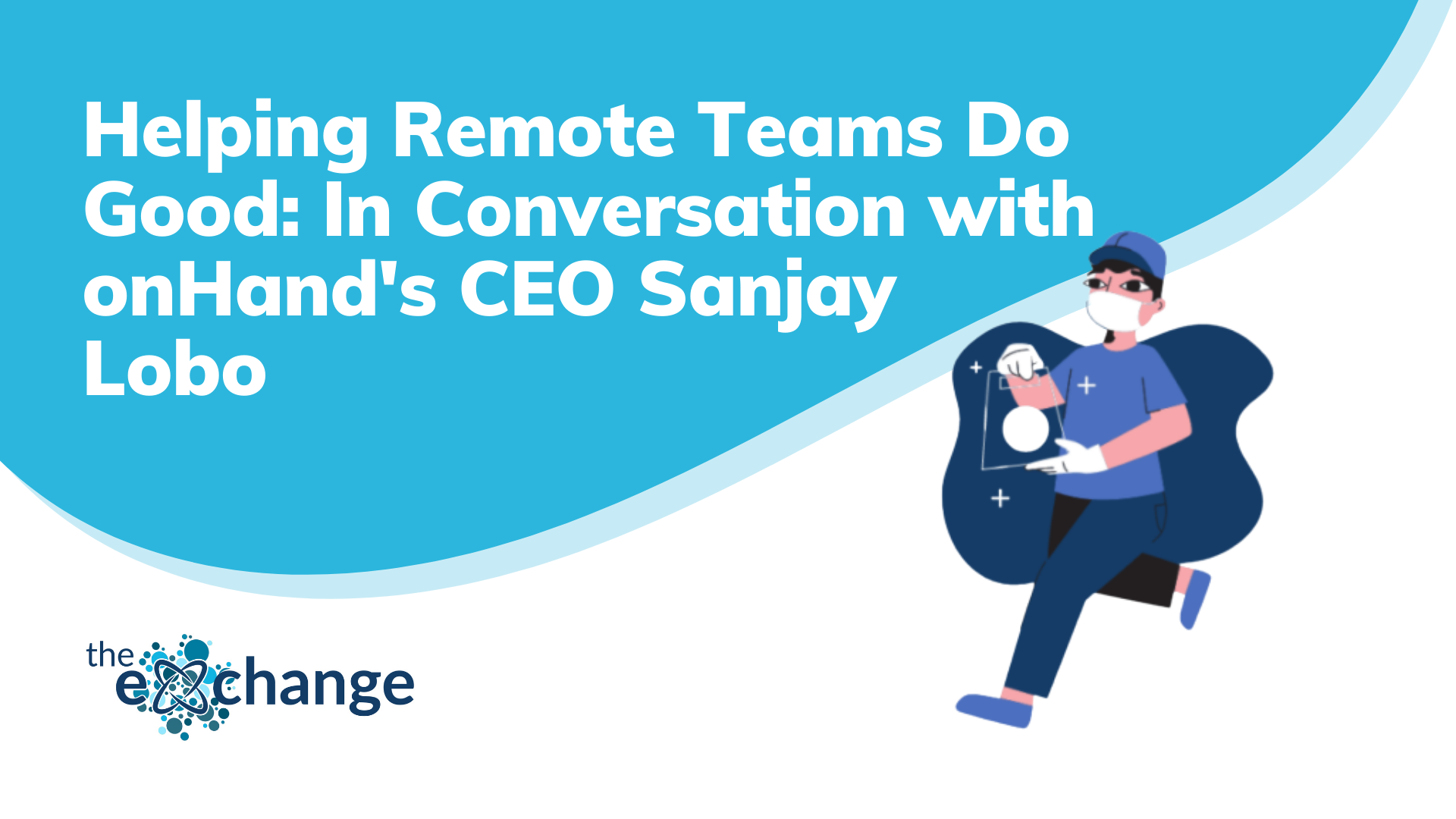
7m people in the UK have care responsibilities for older members of their family. Demand for older adult social care is set to increase 25% by 2025, but at the same time, NHS and local authority funding for services is decreasing.
Those are a shocking set of statistics that set the scene for onHand’s entry into a space of simple help needs that have otherwise been left neglected: the delivery of a weekly shop, the changing of a light bulb or the provision of a new prescription. In other words: the basics.
After attracting thousands of volunteers and helping thousands of people up and down the country, onHand are entering their next stage of development where they are already making significant strides towards making corporate social responsibility scalable, measurable and engaging. The good news is it’s Covid-proof and works for remote employees. With a bit of luck it may just help keep us all a little more sane in our new working world.
We spoke to the Founder and CEO of onHand, Sanjay Lobo to discuss onHand’s next chapter.
Established in 2018, onHand sought to tackle the growing social care crisis for older generations by providing sustainable and engaging access to volunteers.
“Professional care is very expensive and larger charities struggle to engage and maintain volunteers. onHand solves both issues.”
onHand is a tech for good social enterprise, which means they are for profit. Profit that goes back into doing good in the community. With councils being amongst some of their biggest clients, onHand is paid for the provision of their volunteers to cover the areas that social workers usually miss.
“We are deployed for a number of reasons. Companionship calls. Dog walking. Shopping runs. We’ve even delivered a phone to a member of the community a social worker lost contact with.”
Backed and funded by large charities like the Red Cross and British Heart Foundation, onHand was designed as a mobile-first experience that would attract and engage young people passionate about helping their community. This winning combination rang true with onHand’s target audience who quickly built up ahead of steam.
“It’s the really basic stuff that older people tend to struggle with, like changing bed sheets. We started helping people just over a year ago, and it’s grown really, really fast during that period until COVID struck.”
With social distancing and shielding measures impacting the provision of regular services, onHanders have been there to support the older individuals who might not have anyone around to help. As their volunteering services came under record-breaking levels of demand, the team at onHand were looking at the way they operated with critical eyes.
“In the past, we’d ask the person who needed help for a small payment but that meant we were charging the most vulnerable person in the Covid scenario. In our busiest period, we had to change our business model to start working more with local authorities.”
After an initial success with local authorities who quickly commissioned onHand’s services, the gaps started to appear. A limited market, constrained by governance and budget, local authorities were proving to be a difficult market to work for a rapidly growing company. The solution, for Sanjay and the onHand team, was staring them in the face.
“At the start of the first Covid lockdown Newcastle Building Society approached us. They had stopped all corporate volunteering because everyone was working at home and group volunteering obviously did not work anymore. onHand was the perfect solution. It’s local to the employee, can fit round any work schedule and can be done safely.”
With the final changes being made to fully automate the DBS checking process and let volunteers instantly see their nearest opportunity to give help, onHand is ready to provide corporates up and down the country with a cost-effective way to keep their employees engaged and feeling good. With so much focus on mental health for remote workers, it’s worth noting 100% of the Newcastle Building Society team reported mental health improvement through volunteering with onHand. Perhaps it’s not just those that receive the help that benefit.
There are many barriers to entry for corporate social responsibility, but two of the main ones are access and transparency. onHand, as it pivots to help large corporates, seeks to address those two barriers to make CSR accessible, measurable and engaging. To measure the impact of volunteering for corporates, onHand have been busy working on dashboards.
“We now have live data dashboards for corporates to see their total volunteering impact, which is going out really well. The report will tell you what your total volunteering impact has been this week, month or quarter, which teams are the most impactful and more. With so many local, “micro” opportunities to volunteer, we expect corporates to see their CSR stats make a big leap forward.”
Gamification and leaderboards are also on the development roadmap as onHand looks to provide options to engage staff who might be spending more time at home than anticipated. This gamification and social sharing has been a massive hit with one of onHands biggest clients, Newcastle Building Society.
“What we’re seeing with Newcastle building Society is employees will post on all of their social channels about what they’re up to, including LinkedIn. As a org focused on local good, this is massive for their CSR brand credentials.”
onHand, who have just hired a new Head of Business Development, are on a growth trajectory that will see them continue to innovate while remaining at the forefront of the tech for good movement in the social care space.
If you want to give back to your community, or are part of a company who are keen on driving your social responsibility you can contact the onHand team here.